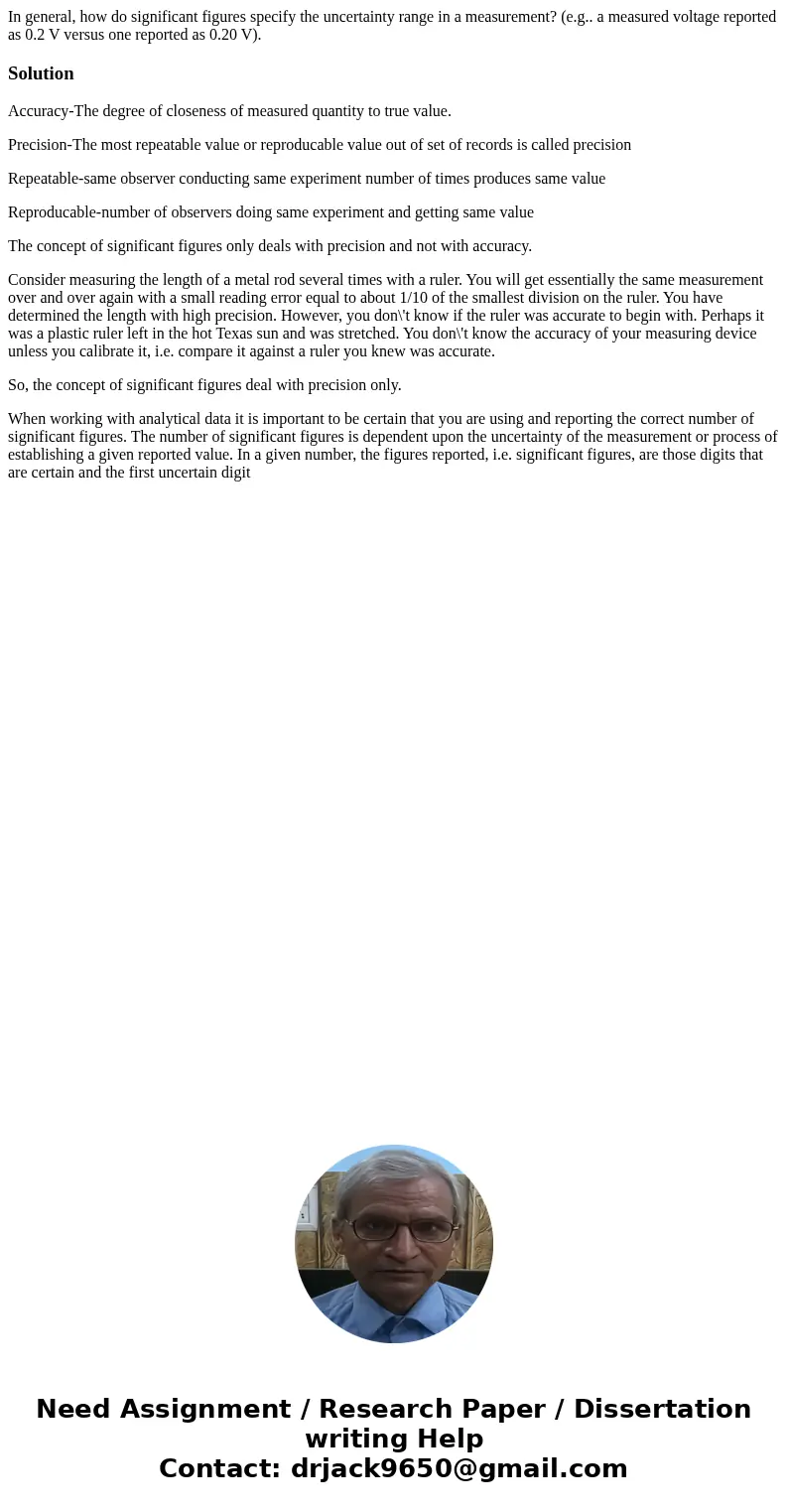In general how do significant figures specify the uncertaint
Solution
Accuracy-The degree of closeness of measured quantity to true value.
Precision-The most repeatable value or reproducable value out of set of records is called precision
Repeatable-same observer conducting same experiment number of times produces same value
Reproducable-number of observers doing same experiment and getting same value
The concept of significant figures only deals with precision and not with accuracy.
Consider measuring the length of a metal rod several times with a ruler. You will get essentially the same measurement over and over again with a small reading error equal to about 1/10 of the smallest division on the ruler. You have determined the length with high precision. However, you don\'t know if the ruler was accurate to begin with. Perhaps it was a plastic ruler left in the hot Texas sun and was stretched. You don\'t know the accuracy of your measuring device unless you calibrate it, i.e. compare it against a ruler you knew was accurate.
So, the concept of significant figures deal with precision only.
When working with analytical data it is important to be certain that you are using and reporting the correct number of significant figures. The number of significant figures is dependent upon the uncertainty of the measurement or process of establishing a given reported value. In a given number, the figures reported, i.e. significant figures, are those digits that are certain and the first uncertain digit

 Homework Sourse
Homework Sourse